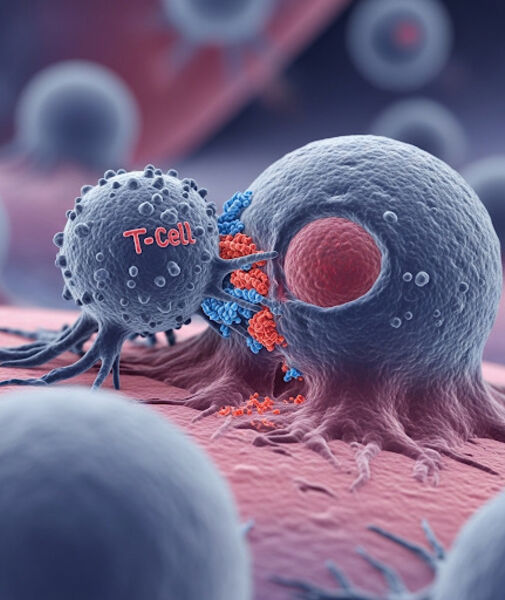An Analysis of the Body's Natural Ability to Fight Cancer

|
Mon, 01 Sep 2025 10:46:37 EEST

|
|

The human body has an incredible ability to defend and repair itself, and this also applies to cancer cells. In continuously regenerating tissues, damaged and potentially dangerous cells are formed daily. Fortunately, the body's immune system has evolved to efficiently identify and destroy these abnormal cells. In this process, a crucial role is played by T-cells and natural killer cells (NK cells), among others, which patrol the body, seeking and eliminating threats.
This natural mechanism works without a hitch most of the time. When cell growth begins to proliferate uncontrollably and forms small cancerous lesions or cysts, the immune system is usually able to recognize them as foreign and initiate programmed cell death, or apoptosis. This is why many precancerous growths or small tumors are never even noticed, as they are destroyed before they can cause symptoms or spread.
However, in some cases, this defense mechanism fails. Cancer cells may develop ways to evade the immune system's surveillance, for example, by modifying proteins on their surface so that T-cells no longer recognize them as a threat. Chronic inflammation or genetic mutations can also weaken the immune defense, allowing cancer to develop and grow into an uncontrollable tumor.
Understanding this natural system has revolutionized cancer treatment. Alongside traditional treatments like chemotherapy and radiation, immunotherapies have been developed. These treatments don't directly destroy cancer cells but instead help the body's own immune system fight cancer. For example, certain drugs release the brakes on T-cells, allowing them to once again recognize and destroy cancer cells.
Gene therapy is another promising field that aims to activate the body's natural defense mechanism against cancer. This method makes it possible to modify a patient's own immune cells (e.g., T-cells) in a laboratory so that they effectively target the cancer. These modified cells are then injected back into the patient's body, where they precisely seek and destroy cancer cells.
Although gene therapy and other novel treatments are still in the developmental phase for many types of cancer, they offer hope to patients for whom traditional treatments have been ineffective. These types of treatments represent a paradigm shift in cancer care, moving from a strategy of massive destruction to a smarter approach that leverages the body's own power.
The interaction between cancer and the immune system is complex and a subject of ongoing research. It's important to remember that even though the body is an incredible machine, its natural defenses are not always sufficient. Lifestyle choices, such as a healthy diet and exercise, support the immune system's function but cannot, on their own, prevent or cure cancer.
It is also worth noting that not all tumors or "lumps" are malignant. Benign tumors or cysts can appear without requiring treatment and are usually asymptomatic. They also do not spread to other parts of the body.
The progress of science aims to mimic and strengthen the mechanisms by which the body naturally strives to maintain health. In the future, more personalized and precise treatments that take into account the specific characteristics of a patient's own immune system will likely become more common.
Sources:
National Cancer Institute. "Immune Checkpoint Inhibitors." Available at:
American Cancer Society. "Immunotherapy for Cancer." Available at:
National Human Genome Research Institute. "Gene Therapy." Available at:
|
:
">Contact Us.


|
Tagit
the body s (5),
the immune system (4),
destroy cancer cells (3),
available at https (3),
treatment types immunotherapy (2),
recognize them as (2),
patient s own (2),
own immune system (2),
immune system s (2),
immune system is (2),
the body (9),
immune system (7),
the immune (5),
cancer cells (5),
body s (5),
gene therapy (4),
patient s (3),
own immune (3),
destroy cancer (3),
cells in (3),
the (22),
and (20),
cancer (16),
cells (15),
body (10),
immune (9),
system (8),
are (8),
treatments (7),
that (7),
|






|








